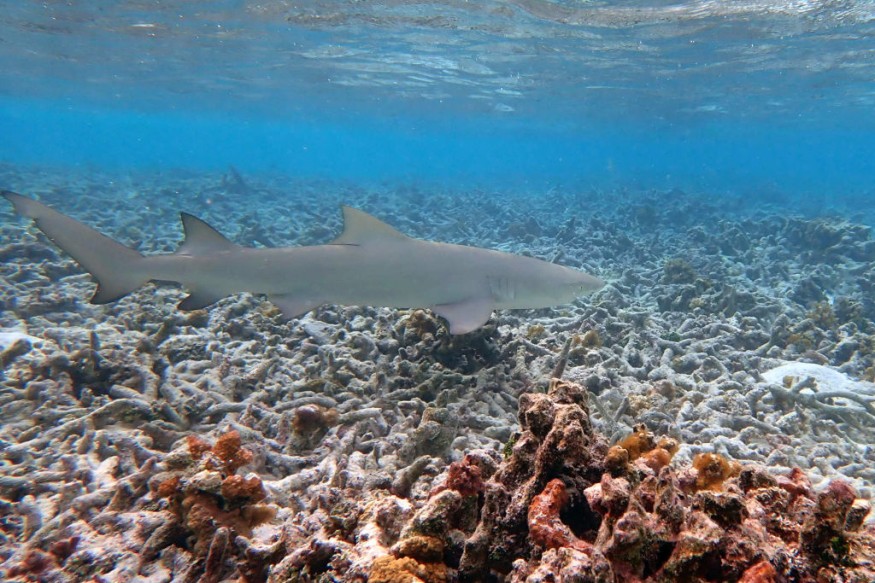Some kind of skin disease associated with white spots and lesions is mysteriously appearing in Malaysia's whitetip reef sharks, and several reports suggest it was caused by rising sea temperatures in the region.
Whitetip reef sharks are generally slender and short, with broad head. They are known as common tourist and diving attraction. With the ability to pump water over their gills, they are able to stay still at the bottom of clear waters.

During the day, they spend most of their time resting inside caves or reefs. At night, they emerge to hunt smaller fishes such as bony fishes, crustaceans, and octopus in groups. In terms of shelter, they usually just stay within perimeters of their home reef for months or years, and returns to the same shelter frequently.
In April, a photo taken by an underwater photographer went viral on social media. Captured was one of the reef sharks exhibiting white spots and lesions on its head off Sabah state on Borneo island. Marine biologists are currently investigating the 'mystery skin disease' afflicted to reef sharks in the area.
The Blame on the Island's Warming Waters
Reef sharks are most commonly living in the reefs of the Indo-Pacific and nocturnal in nature. They gather around reef drop-offs off Borneo to feed on small fishes brought up by the rising sea current in the island.
Experts from state's university and government and conservation groups and divers from the Sipadan island, a famous diving destination near Borneo, attempted to diagnose the skin disease that appeared in the group of sharks. Common assumption was the rising sea surface temperature at Sipadan which had reached 29.5 degrees Celsius in May might have caused the disease. This is 1 degree higher than the extreme change in temperature in 1985.
Senior marine biologist Davies Austin Spiji, with non-profit conservation group Reef Guardian, pinned the skin sickness to the warming ocean.
"We can almost certainly pin the warming ocean as having a role in what we are seeing with the sickly sharks in Sipadan," Spiji said. He added that human activities were not considered to have factored the illness as the Sipadan Island is known to be a marine protected area since 1st October of 2009. Fishing and other industrial activities nearby are also strictly prohibited in Sipadan.
Collecting Shark Specimens
Since the team of experts were currently unable to catch some of the infected sharks with their few attempts, they cannot fully diagnose the situation without testing some samples. Mabel Manjaji-Matsumoto, a senior lecturer with the Borneo Marine Research Institute of Universiti Malaysia Sabah, said that their attempt in May has failed but the team might try again in July.
"If we can get shark specimens, we will surely at least be able to find out the pathogenic cause of the lesions," he noted.
A professor in aquatic veterinary studies also added that the sightings of coral bleaching definitely suggests that changes are happening there due to high temperatures.
© 2025 NatureWorldNews.com All rights reserved. Do not reproduce without permission.





